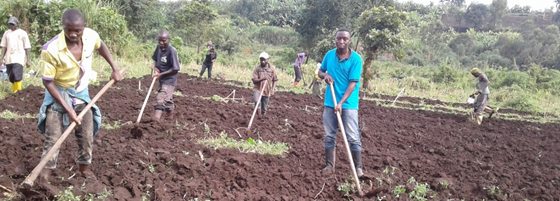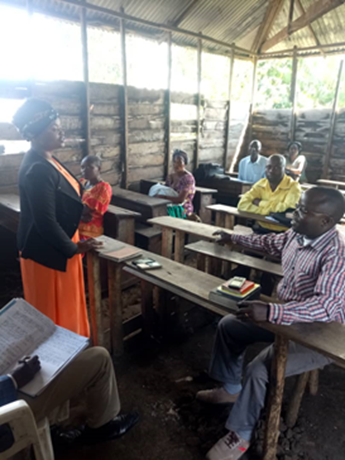Developing Countries During Covid-19
Aid Organizations Adjust to Shifting Health Guidelines: How You Can Help?
New economic challenges, social upheaval, political turmoil, and rising untold health problems are the new normal for many in the Western World. In spite of these difficulties, most of us are still living fairly comfortable lives. We have enough food, our water is clean and readily available, and our other basic needs are being met.
In contrast to our situations, estimates suggest that the world has lost a decade or more of progress in the fight against extreme poverty.
Poverty is on the Rise in the Developing World[1]
Before the pandemic, it was commonplace for many people in the developing world to meet their most basic needs. See Mark Michaelis’ Demystifying Poverty article to better understand the various levels of poverty. For many, enough food, clean water, and safe shelter remained out of their grasp.
Now, they also face increased instability and hardship because of COVID-19. The cost of a bar of soap or a single paper mask is a luxury that many can’t afford. Quarantining rather than working isn’t a realistic option.
This past summer, Mark and I spoke with non-government organization (NGO) leaders in the Democratic Republic of Congo, Kenya, and Tanzania. They discussed the increasing demands required to meet the need of their communities during this pandemic.
Developing countries are suffering from steep and sustained unemployment with no bailout in sight. Medical supplies are waning, and staffing shortages continue to increase. Infrastructure is breaking down, and the schools remain closed. Without the technology for online learning, education has come to a halt for most students.

Having received COVID-19 prevention instruction from World Relief, this Agriculture for Life group in Congo is sure to observe social distancing recommendations to promote health and safety. Photo Credit: World Relief International – Congo
Harvests have been reduced due to the reduction of workers available to gather crops and the new food distribution limitations. As a result, malnutrition is on the rise.
This year alone, the number of people facing severe poverty has increased by 7 percent, according to the Bill and Melinda Gates Foundation Goalkeepers 2020 Report. Perhaps this statistic most concisely conveys the urgency developing countries face.
Aid Organizations Struggle to Provide Necessities
In the US there is confusion and changing guidelines about how best to protect each other from the virus. Local leaders help needy community members by following whatever requirements their governments have put in place; however, the work takes longer, is less effective, and costs more.
Many aid organizations are talking about a decade or more of lost progress because of the COVID-19 pandemic. These countries struggle to rebuild and regain the ground lost during the 2020 health crisis. They attribute the setbacks to new restrictive health guidelines, social distancing expectations, business closures, NGO departures from the region, and government shutdowns.
NGOs will need to prepare for a very long journey. The removal of pandemic-related travel restrictions and the ability to return to the communities that need the most help will only be the beginning. Once they’re allowed to return to work, aid organizations will need to reestablish their organizational support. NGOs will need to hire new aid workers, obtain permission to reestablish offices in local communities, and acquire new aid funding. Getting these communities back to where they were in 2019 will take years.

Our work to address sexual and gender-based violence continues in Congo. Social distancing is maintained despite the relatively close quarters. Photo Credit: World Relief International – Congo
Aid workers and their clients are also struggling to not shake hands, hug, or touch each other as they work. In many societies, this is a significant cultural attitude shift and has been a challenging adjustment.
How We Can Help
As Americans, we have certainly suffered significant hardship during the pandemic over the past six months – some of us more than others. But, our country’s strong social net and welfare system, coupled with immense wealth and disposable income, have kept our lives relatively stable. Developing countries that do not have welfare, savings, a robust medical system, or reliable supply chains are suffering in ways we cannot imagine.
Readers can donate to help support people facing hardships due to COVID-19 in developing countries by donating to World Relief International. If you are interested, consider contacting us about the possibility of IntelliTect matching your donation.
[1] In his book, Factfulness, Hans Rosling suggests the preferred term “Level 1” for those in extreme poverty. We used the phrase “developing world” since the new terminology does not yet have predominant understanding
